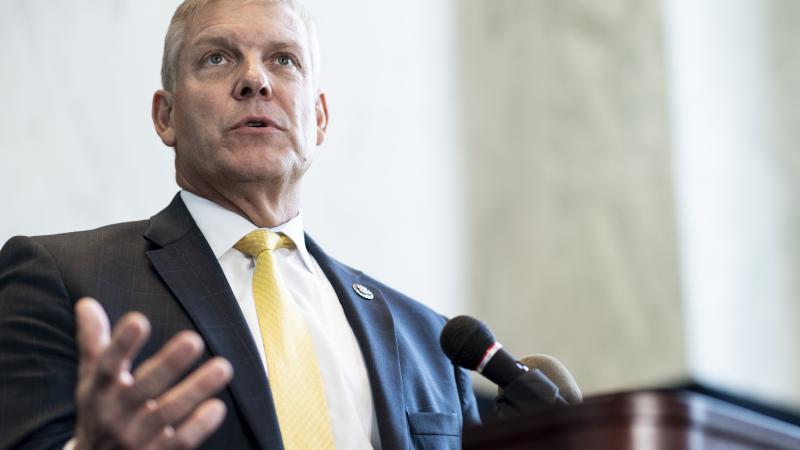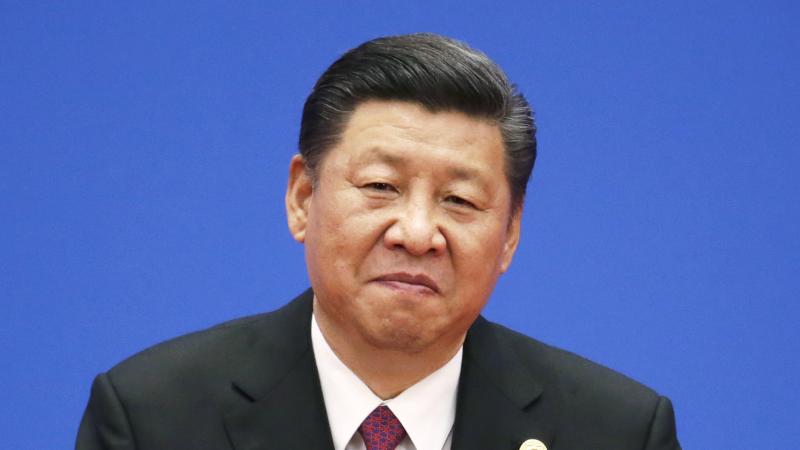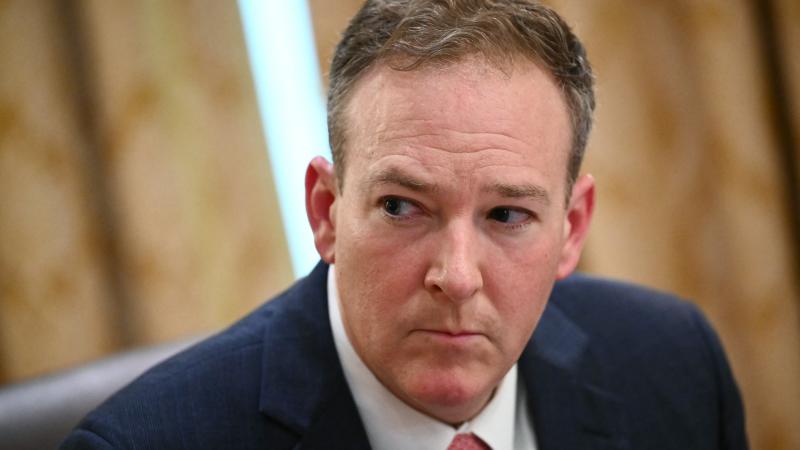GOP fends off Democrat efforts to block curbs on federal censorship of social media users
Democrats sought wide-ranging, undefined exemptions in bill to prohibit using "official authority" to influence censorship. Ranking member repeatedly calls it "Putin Protection Act."
House Oversight Committee Republicans rejected a slew of amendments to weaken their legislation against government coercion of tech platforms (HR 140) at a markup Tuesday, warning that Democrats' proposed exceptions were so vague they would gut the bill's speech protections.
The Protecting Speech from Government Interference Act amends the Hatch Act, which prohibits political activity by federal employees, to prohibit the use of "official authority" to influence or coerce any "interactive computer service" to remove or suppress "lawful speech," add disclaimers or alerts, or restrict access to users.
Penalties include termination, up to a five-year ban on federal employment and fines that are 10 times steeper for White House staff than for other covered employees. President Biden himself would be spared because the Hatch Act doesn't cover the president or vice president.
The Biden administration worked to "normalize" censorship of "politically inconvenient" accounts, Chair James Comer (R-Ky.) said, introducing a "tightly drafted" substitute amendment with three law enforcement exemptions: child pornography, human and drug trafficking, and protection of "properly classified national security information."
Ranking member Jamie Raskin (D-Md.) repeatedly described the substitute and its limited exceptions as the "Putin Protection Act."
It would empower Russian disinformation in American elections and protect "election deniers, COVID deniers" and white supremacists while tying the hands of law enforcement, Raskin said. "Democracy on earth is under siege" from foreign dictatorships as well as the Jan. 6 Capitol breach.
The committee passed Comer's substitute and a related substitute to HR 1162 by Rep. Scott Perry (R-Pa.) that would require federal agencies to disclose "each instance" over the previous five years of the behavior prohibited by Comer's bill, including the names of officials and platforms.
Democrats tried to amend Comer's substitute with law enforcement exemptions for "national security," civil rights including gender identity, "scientific or technical information" and "incitement of violence, specifically from neo-nazi groups," among others.
That last one concerned Rep. Andy Biggs (R-Ariz.), who doubted "neo-Nazi" could be objectively defined and asked why exclude "anti-Mormon" language or incitement by the Black Lives Matter and antifa movements. "You could list any number of groups that have been victimized," including his own family, he said.
Noting the original HR 140 applied to "any platform," Raskin tried to explicitly add media organizations to the substitute's scope because "politicians try to get the media to do their will all the time." He noted Comer called on AT&T to restore Newsmax to its DirecTV service "or else."
Comer responded that he wasn't issuing a threat but warning AT&T it would face consumer "blowback."
Lacking a liability shield like that accorded tech platforms under Section 230, media organizations lie outside the committee's jurisdiction, Rep. Kelly Armstrong (R-N.D.) said.
Rep. Dan Goldman (D-N.Y.) sought to add criminal penalties to the Hatch Act with his amendment named after Kellyanne Conway, the Trump White House counselor found to have repeatedly violated the Hatch Act.
The former president and 2024 presidential candidate came up repeatedly in the markup, with Democrats accusing Republicans of ignoring his attempts to censor criticism, including a crude celebrity tweet, and similar actions against COVID-19.
Trump praised China's early handling of the pandemic on "more than 20 different occasions," Raskin claimed, and Rep. Jared Moskowitz (D-Fla.) said, "I was in the room" when Trump called governors to recommend COVID lockdowns.
Rep. Lauren Boebert (R-Colo.) countered that journalists pounced on Trump as a "xenophobe" for simply noting the virus came from China, and "he didn't make any federal mandates" like Biden continues to do.
Raskin rejected the "entirely false premise" behind the bill, that the feds pressured Twitter to censor the New York Post report on Hunter Biden's abandoned laptop, possibly affecting the 2020 election. Twitter actually made a "fleeting independent decision to moderate access" to the report "for a day or two."
Rep. Melanie Stansbury (D-N.M.) tried to discredit the report on the laptop, whose authenticity was verified by mainstream media, as an "October surprise" that was "planted" by Trump. The bill is "gaslighting" Americans into believing that law enforcement briefings on foreign disinformation campaigns constitute censorship.
Boebert defended the legislation on the grounds that federal officials have issued "very, very false information" about the pandemic, targeted the public — "the real government" — for questioning "inflated" statistics and efficacy of interventions, and are still "colluding to cover up what China released into the globe."
She was amused by California Democrat Katie Porter describing her amendment as "nutrition labels" for social media, adding speech for consumers to evaluate. Boebert said nutrition labels are often gamed to hide the true nature of food, citing "cage-free" eggs as an example.
"I was censored, I was bumped, I was shadowbanned" for sharing mask meta-studies, Biggs said, while the Department of Energy waited "a couple years" to say COVID leaked from a Chinese lab, and medical publisher The Lancet was "three years late" with a meta-study on the strength of natural immunity.
Denying that Twitter's regular meetings with CIA and FBI officials amounted to coercion "leaves me speechless," Biggs said. "That's fascistic."
The censorship sometimes went against the left, Rep. Anna Paulina Luna (R-Fla.) said, citing the Young Turks program.
Rep. Byron Donalds (R-Fla.) introduced articles about medical board investigations and punishments for doctors who challenged COVID orthodoxy. The bill is intended to stop "short-circuiting the process of legitimate debate," as 51 intelligence experts did by describing the Hunter Biden laptop as a Russian plant, he said.
While several Democrats asked for evidence the feds were involved in specific sanctions against users, the former constitutional law professor Raskin sought the case law supposedly prohibiting federal coordination with platforms.
Biggs responded he expects the Supreme Court to provide the answer when it hears the Big Tech censorship lawsuit by Missouri and Louisiana attorneys general against the Biden administration.
The Facts Inside Our Reporter's Notebook
Links
- HR 140
- substitute amendment
- The committee passed Comer's substitute
- related substitute
- HR 1162
- "national security,"
- civil rights including gender identity
- "scientific or technical information
- "incitement of violence, specifically from neo-nazi groups
- Comer called on AT&T restore Newsmax
- amendment named after Kellyanne Conway
- repeatedly violated the Hatch Act
- crude celebrity tweet
- authenticity was verified by mainstream media
- the strength of natural immunity














